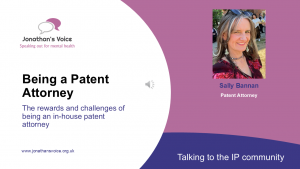Starting or even returning to university can be daunting for any young person.
Having worked at a university, I have seen how difficult it can be for some to adjust to university life. I have also been caught in a situation where I wanted to talk to a young person’s parent, but was not able to as they were deemed an adult and as a result issues of confidentiality may have arisen. It seems since my experience a number of years ago things have moved forward in a positive way.
It is interesting to recognise that Universities UK (UUK) together with PAPYRUS (Prevention of Young Suicide) have offered guidance to universities about registering a “trusted contact” for students when they start their course. This is the first time that a consistent practice has been proposed for the university sector.
The aim of the advice is clearly to help prevent suicides by ensuring that there is a proactive system in place for contacting a “trusted contact” (not necessarily the same as next of kin.) The guidance says that university staff should make every reasonable effort to secure consent from the young person but that there may be circumstances where communication with the “trusted contact” maybe needed, for example if there is a serious concern about a young person’s mental health or safety .
The guidance identifies some recommendations:
- Making it mandatory for students to give a “trusted contact” at registration (being clear that this does not necessarily need to be a parent)
- Having check-ins at the start of each academic year to ensure the information is up to date (circumstances can change)
- Ensuring universities review their suicide prevention plans and polices to help keep students safe
- Being clear that, although that it preferable to gain agreement from the student, if there are serious concerns about their safety or mental health, universities can decide to involve trusted contacts without agreement. Such decisions should always be made in the student’s interests, by appropriately qualified staff and supported by senior leadership and be based on a risk assessment establishing the grounds for serious concern and be properly governed and recorded.
Professor Steve West CBE President of Universities UK said:
“There is nothing more devastating for a university community than a student death by suicide. As a sector, we need to do everything we can to reduce the risk of suicide and serious self-harm.
Universities are committed to putting students who may be in difficulty at the centre of decisions about their care – including who they want involved. But this commitment must be balanced with a duty to protect a student when there are serious concerns about their safety and welfare.
Universities can help save lives when they adopt a proactive response to suicide prevention, and an important part of that proactive response is making proportionate, risk-based decisions around involving trusted contacts”
Jackie Scruton









